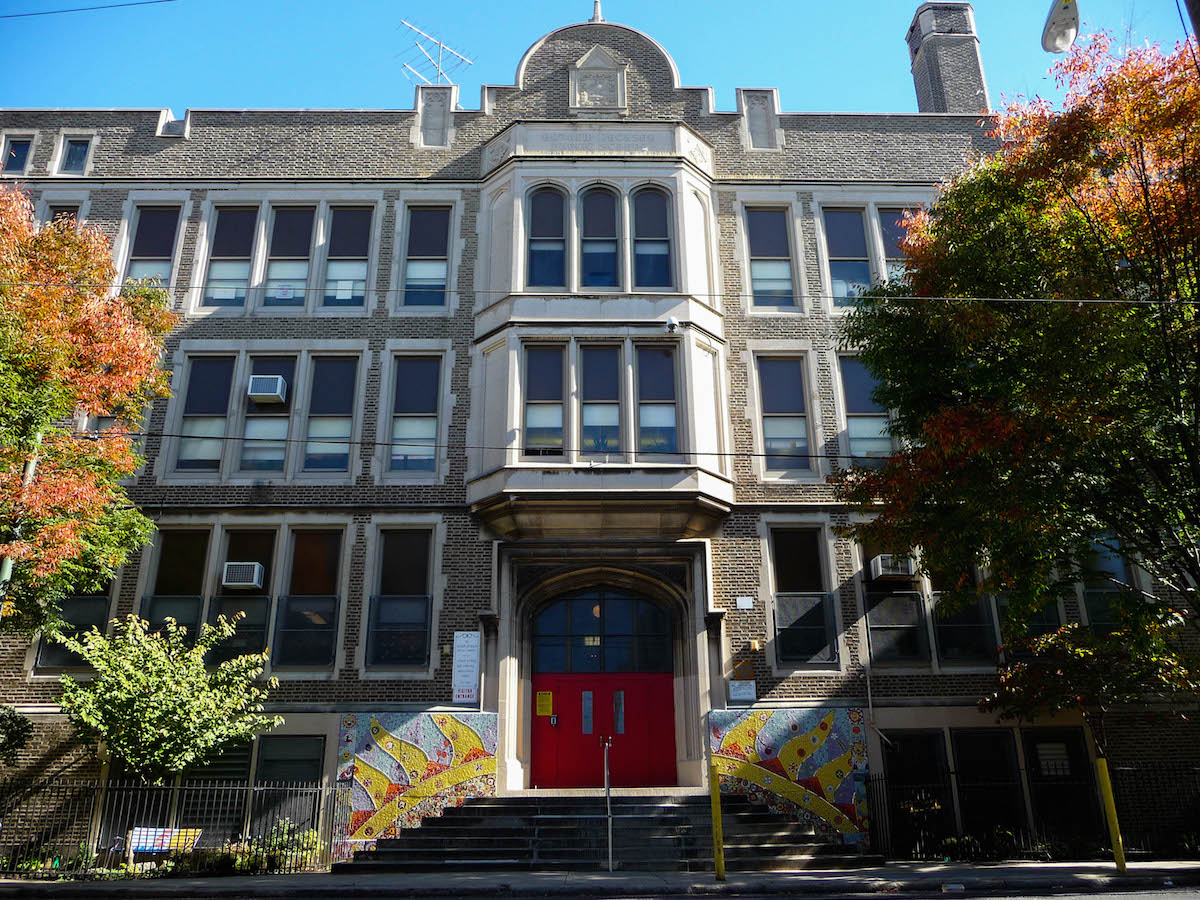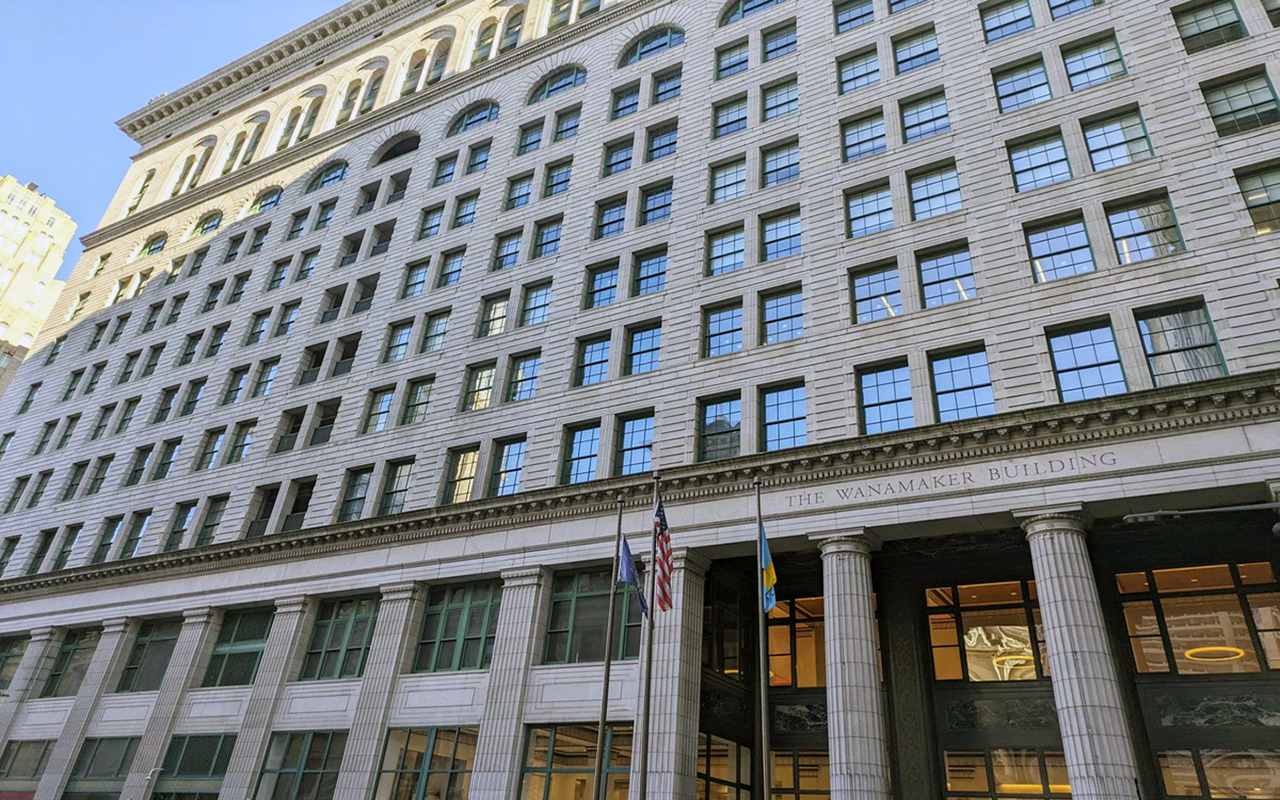
Philadelphia’s Andrew Jackson Elementary School officially renamed after Fanny Jackson Coppin
Students at the school were the first to express discontent with the school’s namesake.
With a Board of Education vote, Philadelphia's Andrew Jackson Elementary school will now be named after a groundbreaking educator, Fanny Jackson Coppin.
Last night, on June 24, the board voted to officially rename the school in a 9-0 vote. The name change is effective July 1, 2021.
It comes after several months of engagement with the Jackson Elementary School community, including a series of surveys, focus groups and meetings to discuss potential names that spoke to the importance of education within the diverse community.
The decision to rename the school also functions as an extension of the racial reckoning ignited in 2020, where countless controversial figures — often embedded in racism — were taken down across the nation.
“We as a school, along with the district, believe strongly that the name of the school should reflect the values of not just the district, but of our community, so for that reason, we decided to explore other names that would reflect and respect the diversity of our community,” said Jackson Elementary School Principal Kelly Espinosa in an interview with AL DÍA.
She said the school has an equity committee, which helped to develop surveys to students.
Without prompting, several students commented on the school’s name, and asked why it was named after Andrew Jackson, then demanding it should be changed to something else.
“So our students were already voicing that,” Espinoza said.
The school then conducted a formal survey on the matter that went out to all students, parents, and guardians. From there, the school managed door-to-door campaigns and town halls to get the community involved and so they could offer name suggestions.
The name Fanny Jackson Coppin rose from the community’s input.
“Actually, all four of the names on the ballot were suggested by community members,” Espinosa said. “And then we did our research, submitted the names to be vetted by the school district for approval, and presented those names and biographies at the various town halls.”
Born a slave in Washington, D.C. in 1837, Coppin eventually gained freedom as a child and received some schooling as a domestic worker. As a teenager, she supported herself after moving to Newport, R.I. and graduated from the Rhode Island State Normal School before attending Oberlin College in Ohio, where she organized evening classes to teach freedmen.
In 1865, she became the second Black woman to graduate from the college.
Coppin also has ties to Philadelphia.
Following her graduation from Oberlin, Coppin came to Philadelphia to work at the Institute for Colored Youth, a Quaker school where she eventually became head principal, until her retirement in 1902.
“The very principles that she fought to uphold nearly 200 years ago are ones that we instill in our students today and will continue to be what helps drive positive and lasting impact for generations to come,” Espinosa said in a statement, noting that Coppin was responsible for vast educational improvements in Philadelphia at the time.
“This name is about recognizing the contributions of an educator whose work isn’t widely known, but it’s also about showing our students the impact they can have on the lives of others,” Espinoza continued.
RELATED CONTENT
The school would eventually move from Philadelphia to Delaware County, PA and be renamed Cheyney University — the first higher education institution for Black people.
After her retirement, Coppin became a missionary with the African Methodist Episcopal Church and served in England and South Africa.
Her autobiography, Reminiscences of School Life, was published shortly before her death in 1913, at the age of 76.
Coppin is also the namesake of Coppin State University, a historically Black college in Baltimore.
Andrew Jackson Elementary School, named after the 7th president of the United States, opened in 1924.
“I already changed my email signature,” Espinosa remarked during the interview. “The fact that she is a woman, and a woman of color juxtaposed to Andrew Jackson and what his history and his legacy is and some of the things that he’s known for — I just think that is a beautiful juxtaposition.”
There will be a period of transition for the school. Everything from changing email signatures, as the principal has already done, answering phones, and considering everyone in the school’s ecosystem.
“Some parents were students here themselves and now their children are here, so there is going to be a transitional year involving the name change council, which is made up of teachers, community members and parents to do that work,” said Espinosa
The name change officially goes into effect next month, but it will only really sink in when students return to Fanny Jackson Coppin Elementary School.
“It’s someone who’s very empowering to our school community and especially our students, knowing that their voice matters, and that their input matters, and that they can be change agents,” Espinosa said.











LEAVE A COMMENT:
Join the discussion! Leave a comment.